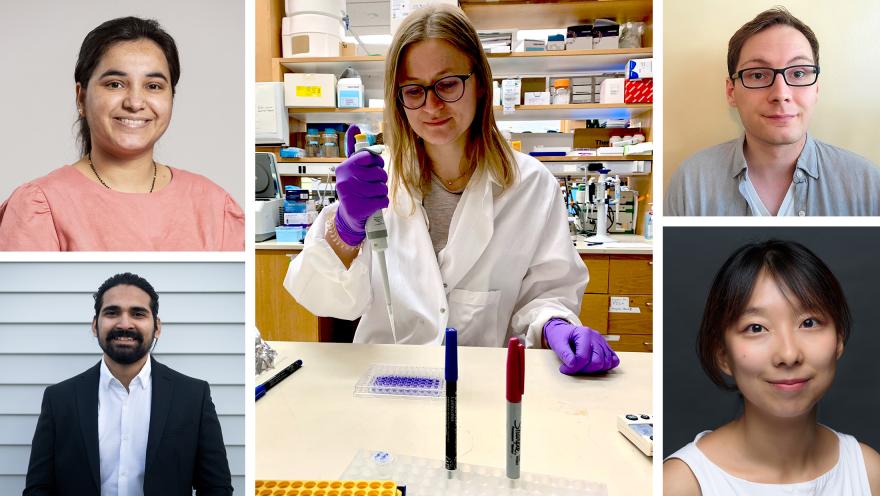The ALS Association has awarded more than $700,000 to support five promising early career scientists through its Milton Safenowitz Postdoctoral Fellowship Program. This program encourages a pipeline of ALS researchers and innovative ideas that can lead to better ALS treatments and care.
Established in memory of Milton Safenowitz by the Safenowitz family, this unique program encourages young scientists to enter and, importantly, remain in the ALS field. After completing this fellowship, more than 75% of awardees stay in ALS research. Many go on to establish their own laboratories and mentor more ALS researchers along the way.
“The Safenowitz Program is a crucial investment in the future of ALS research. Not only does this fellowship support innovative ALS investigations now, but our funding helps promising young scientists establish themselves as part of the ALS research community for years to come,” said Dr. Paul Larkin, director of research at The ALS Association. “We are proud to have awarded five fellowships in 2022 to postdocs who are eager to better understand the underlying mechanisms of ALS and contribute to the search for effective treatments and a cure.”
Caiwei Guo, Ph.D., from Stanford University; Miriam Linsenmeier, Ph.D., from the University of Pennsylvania; Anuradhika Puri, Ph.D., from Washington University in St. Louis; Kevin Rhine, Ph.D., from the University of California San Diego; and Jayakrishna Shenoy, Ph.D., from Brown University, were selected from a highly competitive group of applicants based on their professional accomplishments and the high scientific merit of their proposals. They will receive a maximum of $150,000 over the next two years to support their projects and professional development.
“I am very grateful to receive this fellowship at the early stage of my postdoctoral training,” Guo said. “This support will give me the time and freedom to explore risky research ideas. In addition, I not only will be able to learn more experimental techniques but also develop career-advancing skills that will help me become a more successful neuroscientist in the near future.”
Through their research projects, the fellows hope to gain a better understanding of the processes that contribute to ALS development and progression, such as aging and the accumulation of proteins like TDP-43, in the hope of finding new targets for future treatments.
“Perhaps our work may be able to give people living with ALS and their families a little bit of hope, knowing that many researchers around the globe are working tirelessly to develop a cure for ALS,” Linsenmeier said.
For more information about the 2022 ALS Association Milton Safenowitz Fellows’ projects, click HERE.
If you would like to receive monthly ALS research updates, SUBSCRIBE to our newsletter, Research Matters.
To continue to follow stories about people living with ALS in the community and learn more about the disease, subscribe to receive our weekly blogs in your inbox HERE or follow us at als.org/blog.


Join the conversation. Please comment below.